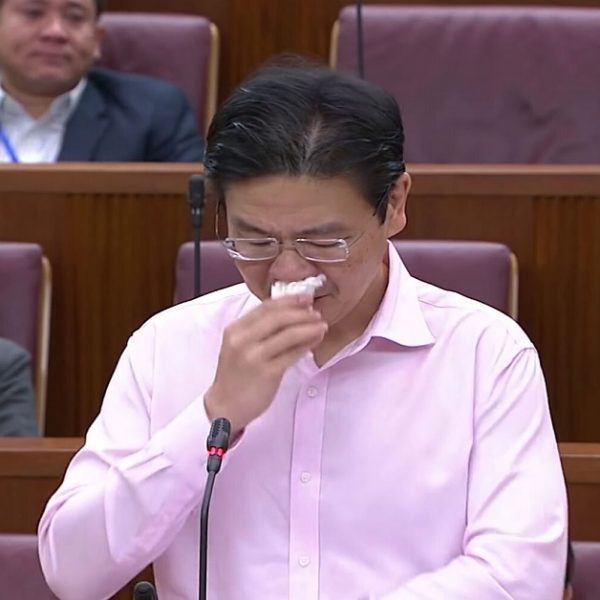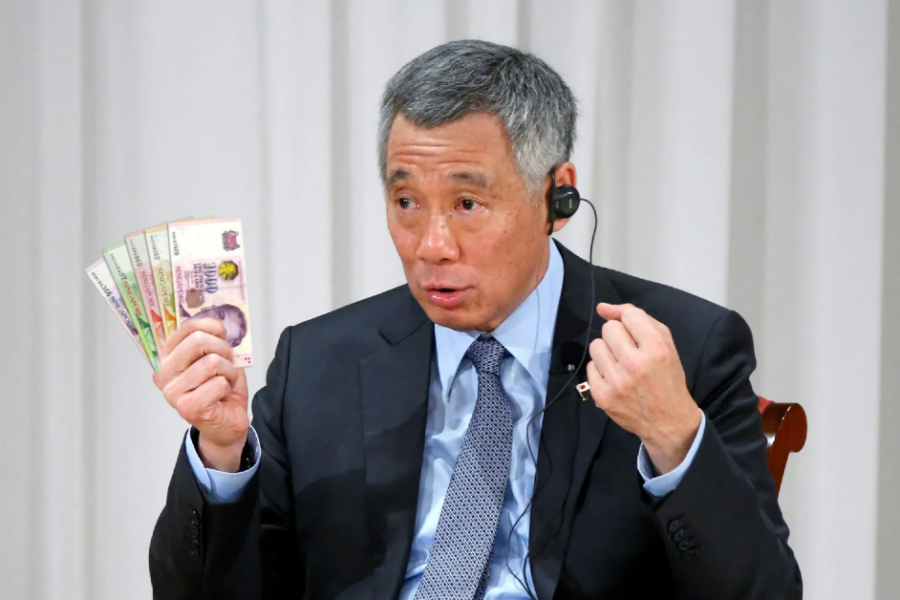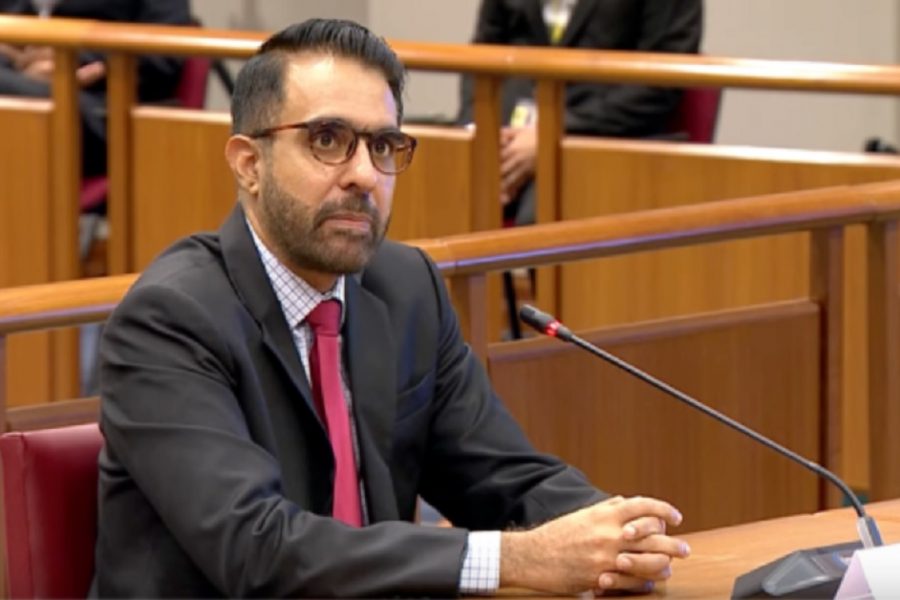This is not about press freedom which ranked us at 160 (of 180). This is not about how newspaper articles are often partisans of the ruling party. It is about how objectively speaking our journalism standards are so bad that you can consider skipping the news altogether.
Everything is allegedly alleged.
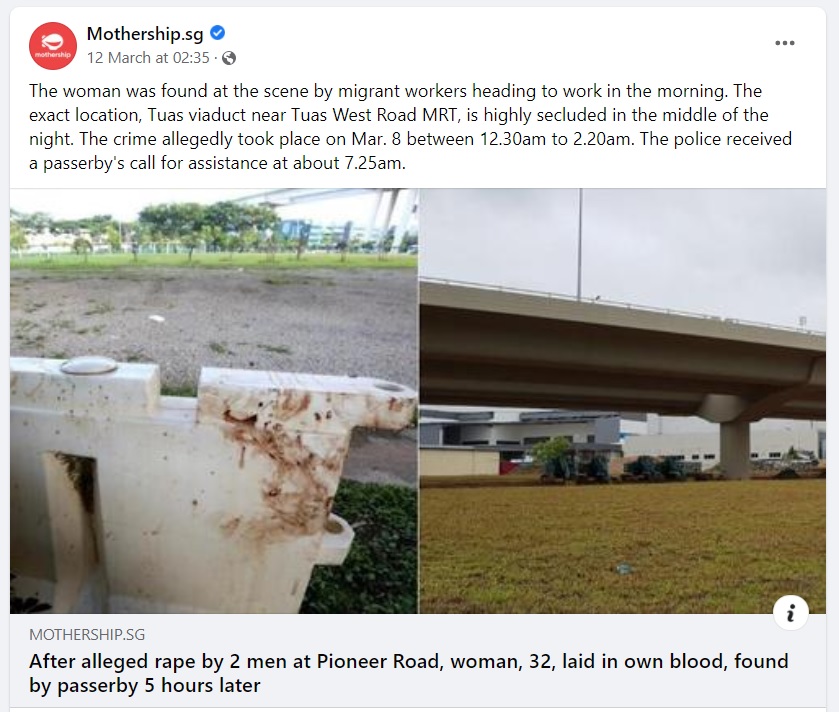
Whether or not the case is already proven to be true, these media like to keep using the word “allegedly”. Do these media not know that “allegedly” is supposed to be used to convey claims that are without proof?
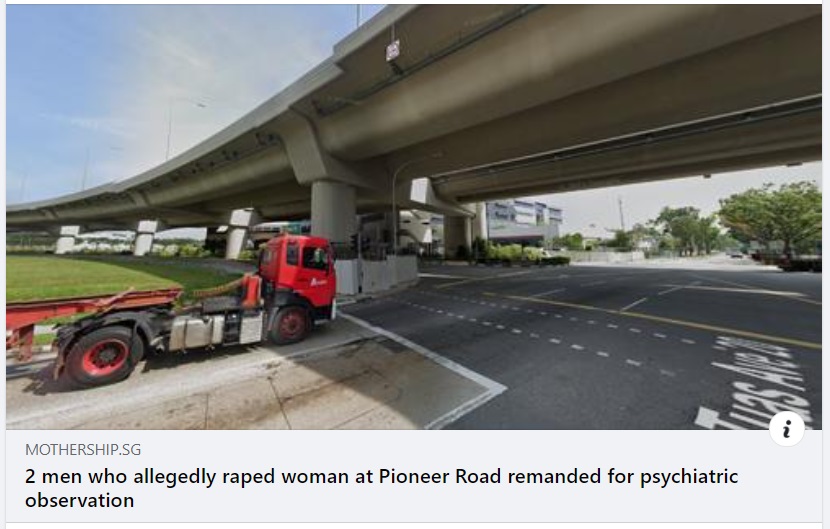
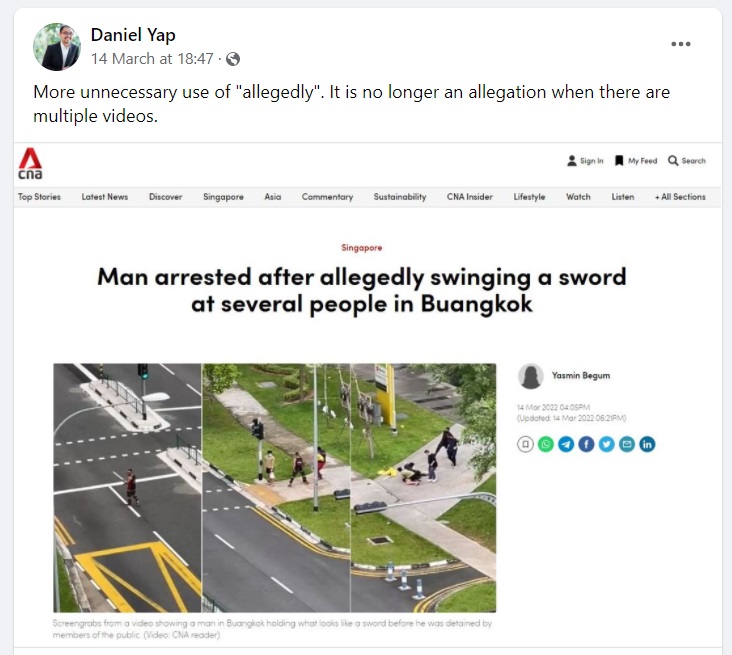
Look at some of these incidents which have definitely happened, with undeniable proof. Why do they still use the word “allegedly”? They do this even when they directly share videos of the incidents.

Just reporting Facebook posts is apparently enough.
This is something noticed by veteran journalist Bertha Henson a couple of times. Essentially, the newspapers are so lazy that they’d take Facebook posts and present it as a story without adding value.
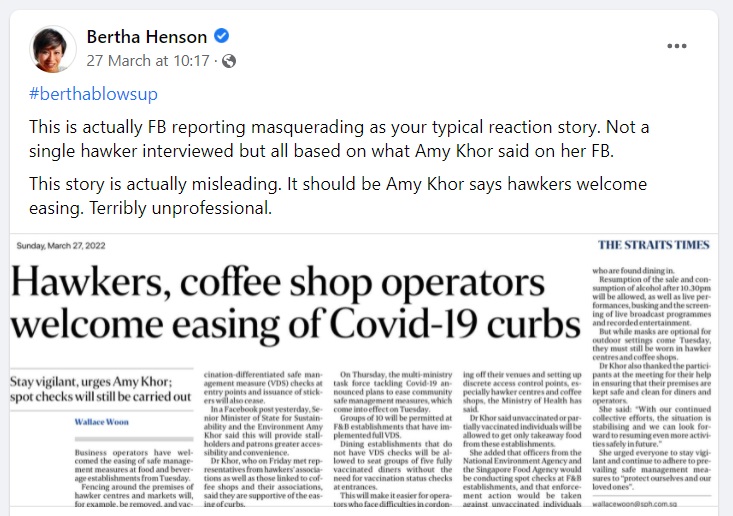
Especially this one, where they took what Amy Khor said and say that all the hawkers welcome the new measures.
“I really dislike media picking up from FB rather than interviewing people. It shouldn’t stop media from getting to these people with QUESTIONS. It cannot be that it’s good enough to just have ‘quotes’ from them.”
Bertha Henson
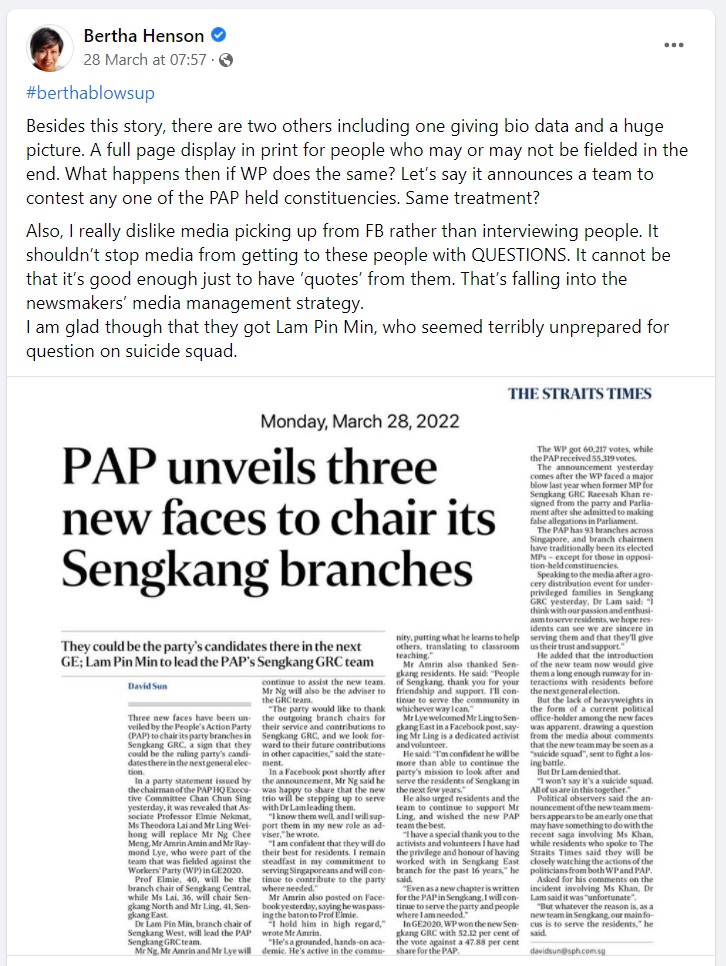
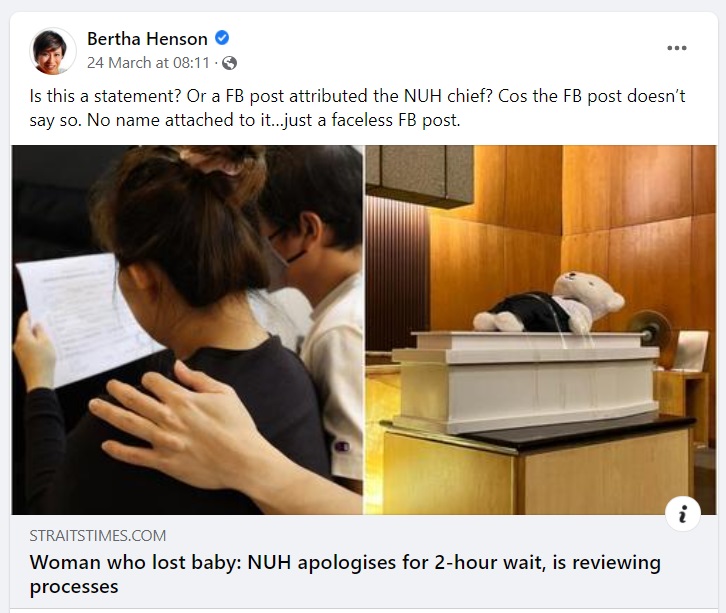
These articles look like the Straits Times were just trying to fill up space in their newspaper/website. We might as well just read the Facebook posts directly! The least these mainstream media could have done is to ask those involved additional questions!
Headlines can be non-indicative of what’s in the article.
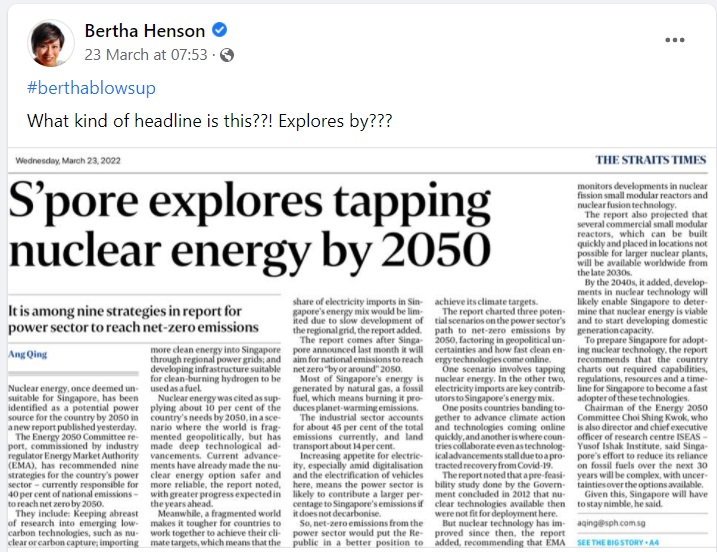
The way they phrase things is often very confusing. It’s like they don’t even try to make it clearer!
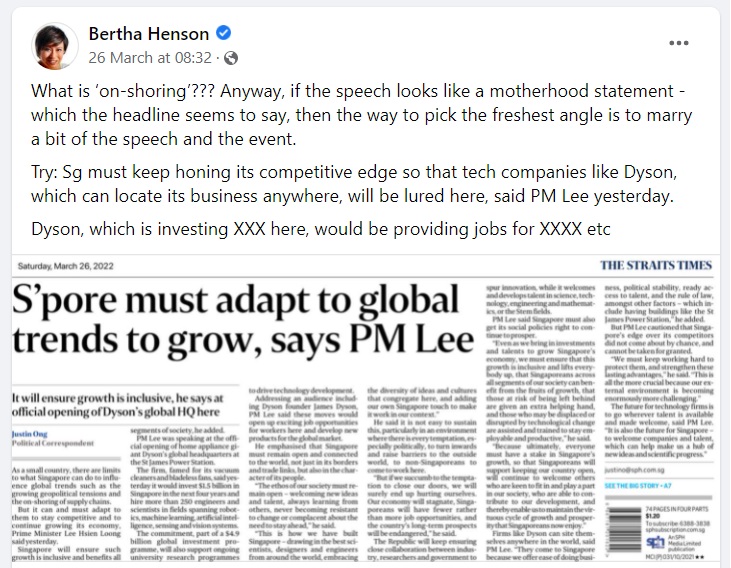
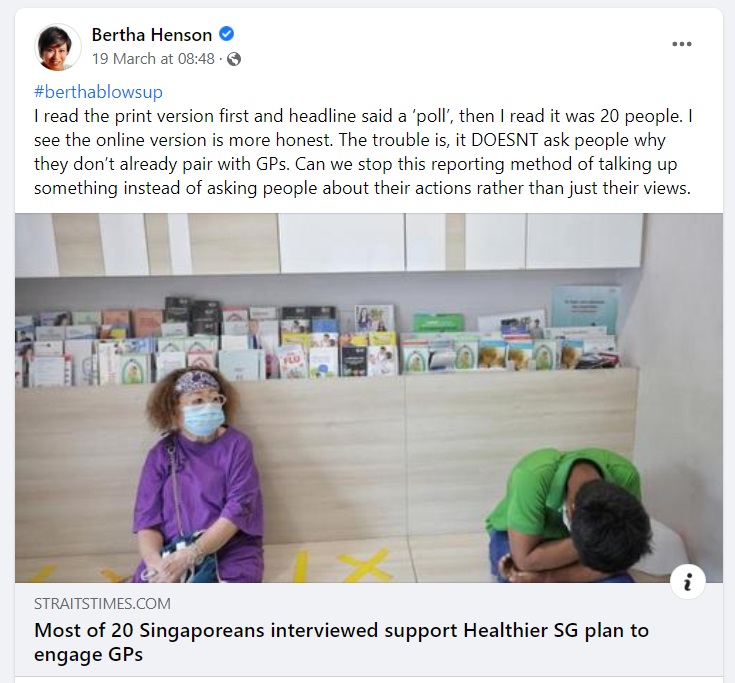
Unfortunately, we can’t even POFMA them for misrepresenting the facts.
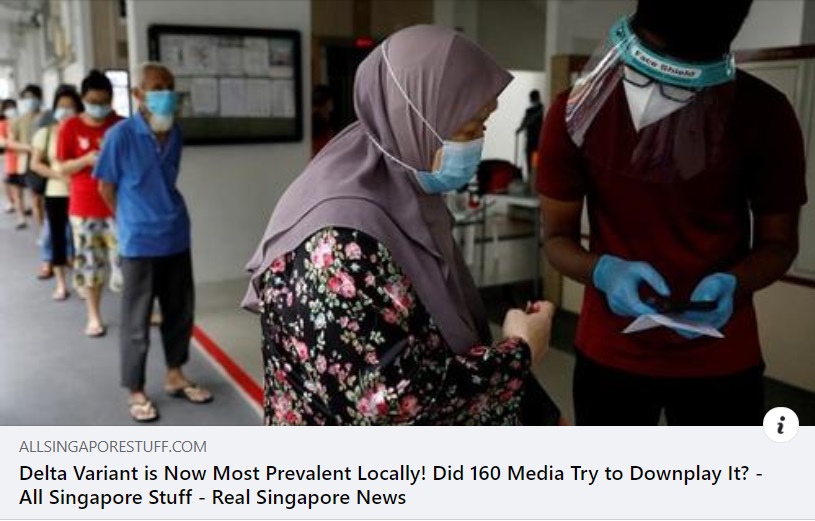
Our journalism standards have really dropped!
Remember that these are mainstream media with press accreditation (except Mothership for the next 6 months). This means that their reporters have the right to attend briefings and press conferences by government agencies. Accordingly, they have the platform to ask questions.
Even if the people they need to ask questions to are non-governmental, the credibility that comes with their brand name (e.g. “CNA”, “Straits Times”) means that more Singaporeans would actually bother answering their questions compared to smaller alternative media sites like ours.
They have no excuse for not putting in more work in their reporting!

